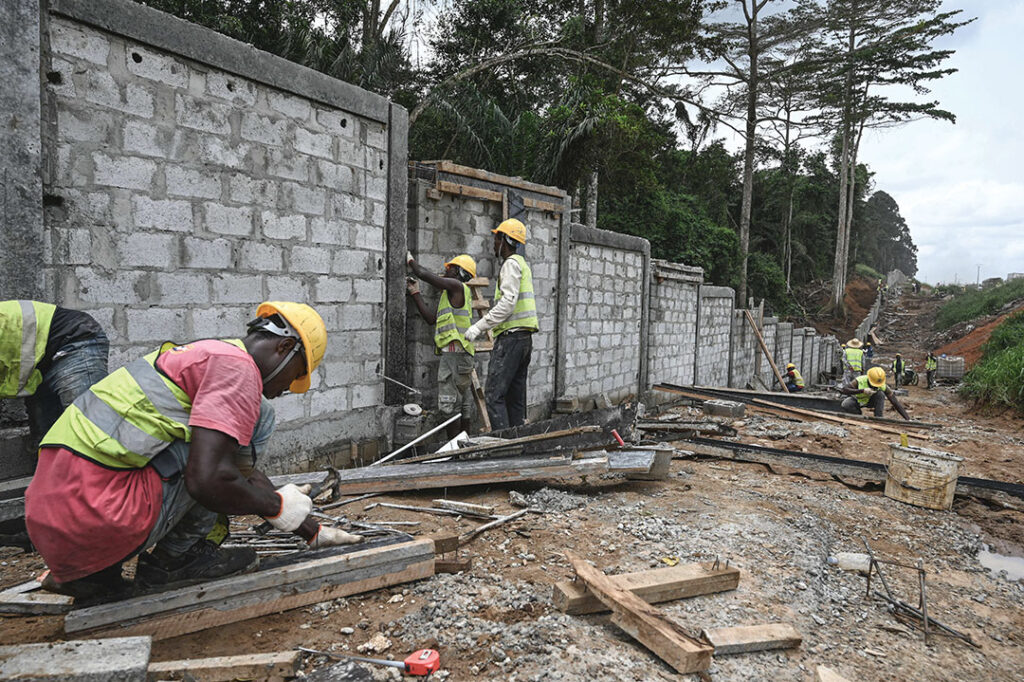AGENCE FRANCE-PRESSE
Construction workers in Abidjan, Côte d’Ivoire, are building a barrier around a primary forest in the center of the city to protect the endangered green space from urban expansion.
When finished, a cement block fence 10 kilometers long will run along the edge of Banco National Park to prevent it from being swallowed up.
Along with the Tijuca National Park in Rio de Janeiro, Brazil, the nature reserve is one of just two virgin forests worldwide to have survived in the heart of a metropolis.
Ivoirian ecologist Tom Thalmas Lasme said the wall is crucial in a country that has lost a huge swath of forests in the past 50 years.
The nature reserve of 3,474 hectares is home to about “30 flora species in danger of extinction in West Africa,” he said. But in six years, population and construction growth have eroded its boundaries.
Those who live along its borders regularly slip in to chop down trees for firewood or hunt animals for food, locals say. Drivers speeding along its western edge also have started fires with discarded cigarette butts.
Côte d’Ivoire has lost as much as 80% of its natural forests in just 50 years due to agriculture, bush fires, illegal forest exploitation and artisanal mining, according to the International Union for Conservation of Nature.
Of the 3 million hectares of forests the country has left,
2 million have been designated as 14 separate nature reserves, the Ivoirian Office for Parks and Reserves (OIPR) says. Every year 300,000 more hectares of trees vanish.
The OIPR is building the barrier around the western and northern boundaries of Abidjan’s forest with government and Japanese funding to help halt the destruction.
“The Banco forest absorbs carbon dioxide and emits essential oxygen for Abidjan’s 6 million inhabitants,” said the office’s head, Adama Tondossama. “We have erected this concrete fence to avoid this green lung from disappearing due to deforestation.”
Fousseni Coulibaly, a lieutenant colonel in charge of the park, said preserving the reserve also helps regulate rainfall and recharge the underwater reserves feeding the nearby city with drinking water.

